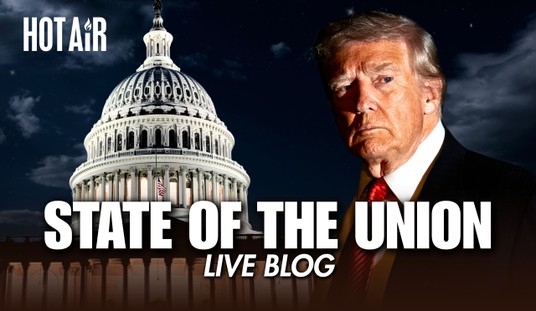Police want to rifle through the virtual filing cabinet you carry around in your pocket without permission — and there was a dispute over whether they should be able to do that? How was this even a case?
Actually, it wasn’t much of a case: 8-1, with Alito concurring in part and concurring in the judgment overall. No dissents. Roberts’s opinion for the Court was bold colors, too:


Follow the last link and skip to page 17 of the opinion to see him get going about the massive amount of information that smart phones can hold. The state’s thinking here, I guess, was that SCOTUS can be quirky when it comes to warrantless searches in the course of arrest, so why not run this up the flagpole and see how it flies? If cops can seize your DNA without a warrant during a stop by swabbing your cheek, why can’t they seize what’s in your Dropbox account too? That’s where the massive amounts of information come in: Between the enormous capacity of the phone’s hard drive, says Roberts, and the data stored remotely in the Cloud, a single arrest could give the state access to your entire life. The state’s best argument was that, in theory, a perp’s associates might be on the way to the scene to attack the police and the only way the cops might know that is to check his phone. How often does that really happen, though, asks Roberts? And even if it happens very rarely, how does that risk justify letting cops search 300 million people’s phones willy nilly during an arrest?
USA Today wonders if this presages another sweeping SCOTUS ruling down the road against NSA data-mining. Maybe not: Gabe Malor’s right that there’s a difference legally between the cops searching data stored on your own hard drive and searching data (or metadata) you’ve shared willingly with a telecom company. There’s a privacy interest in the former but not, under current precedent, in the latter. Then again, Roberts’s language today really is broad. If the Court’s worried about letting the state tap a bottomless reservoir of information about individuals, they may not care much where the tap is placed. You could, in theory, dispatch with current precedent in one flourish: Since, in our interconnected world, virtually all digital information is disclosed to some entity at some point, the act of disclosure to a telecom company can’t be understood as destroying the individual’s privacy interest in the information. The question is, will metadata be treated like information stored on a smart phone’s hard drive or as something qualitatively different, like the DNA sample that cops are already allowed to take during arrest? And if the latter, how come the NSA can collect it without an arrest being made?








Join the conversation as a VIP Member